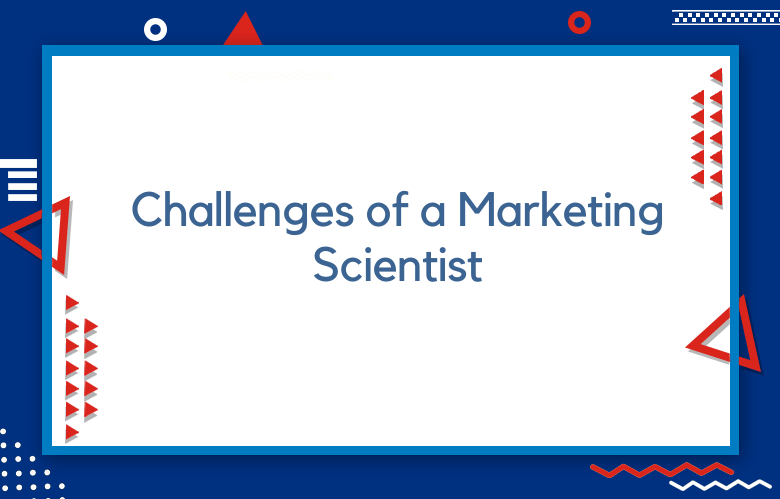The Challenges of Being a Marketing Scientist in the Digital Age

In today’s digital age, marketing is undergoing a scientific revolution. With the advent of big data and ever-evolving technologies, marketing increasingly relies on data and analytics to drive decision-making. However, being a marketing scientist is not without its challenges.
What does it take to be a Digital Marketing Scientist?
To succeed as a digital marketing scientist, you must have technical and soft skills. You need to be proficient in statistical analysis and data modeling. It would help if you also had experience working with the various digital marketing channels, as well as experience with experimentation methodologies. In addition, it’s essential to communicate your findings to both technical and non-technical audiences.
While not required, having a background in computer science will give you a significant leg up in this role. If you don’t have experience in computer science, you can still succeed in this role by being willing to learn new things quickly and being comfortable working in a fast-paced environment.
A digital marketing scientist is a marketer who specializes in data collection and analysis. They are responsible for designing and conducting experiments and interpreting the results of those experiments. In short, they use data to help marketers make informed decisions about their strategies and tactics.
Senior Director of Product Marketing at Adobe, Toni NOAA, once said: “Digital marketing scientists fill the gap between traditional marketing strategists focused on ‘art’ and data analysts focused on ‘science.'” In other words, digital marketing scientists bridge creativity and analytics.
The challenges of being a Marketing Scientist
One of the biggest challenges faced by marketing scientists is dealing with big data. With the proliferation of digital channels and the growing volume of customer data, it can be challenging to sift through all the noise and identify meaningful patterns and insights. Marketing scientists need to have strong analytical skills and be able to use sophisticated data mining techniques to make sense of large data sets.
The challenge faced by marketing scientists is keeping up with the ever-changing digital marketing landscape. Technologies and consumer behaviors are constantly changing, making it challenging to develop long-term strategies that will still be effective in the future. Marketing scientists need to be able to anticipate changes in the marketplace and adapt their strategy accordingly.
Keeping up with the Latest Trends
One of digital marketing scientists’ most significant challenges is keeping up with the latest trends. This requires digital marketing scientists to educate themselves on new trends and technologies continuously. Additionally, it’s essential to identify which trends are here to stay and which are merely fads.
Dealing with Constant Change
Another big challenge that digital marketing scientists face is dealing with constant change. Because digital marketing constantly changes, scientists must always be prepared for change. This cannot be easy when trying to maintain a work-life balance. Additionally, keeping up with the changes can be challenging if you’re not actively working in the field daily.
Working with Uncertainty
Lastly, another challenge that digital marketing scientists face is working with uncertainty. Because there is always something new around the corner, it can be challenging to plan for the future or make long-term decisions. This uncertainty can lead to stress and anxiety for those who work in this field.
Digital marketing scientists, the field is constantly changing. New technologies are always emerging, so the skills you need to succeed in this role continually evolve. As a result, you need to be comfortable learning new things quickly and working in a fast-paced environment.
We need to be able to manage large amounts of data effectively. This data comes from various sources, including website traffic, social media interactions, email opens and clicks, and more.
She is staying up-to-date on the latest trends in digital marketing. This industry is constantly changing as new technologies emerge (such as AI and voice search) and new platforms become popular (such as Snapchat and Instagram). As digital marketing scientists,
Understanding the latest Technologies and Trends
The marketing world moves fast, and it can be challenging to know all the latest trends and technologies. Staying up-to-date is essential for digital marketing scientists to design experiments that accurately reflect the industry’s current state. Otherwise, their experiments could be based on outdated assumptions, invalidating their results.
Bridging the gap between Art and Science
As we mentioned, one digital marketing scientist’s most significant challenge is bridging the gap between art and science. Marketers are typically more focused on creativity, while data analysts focus on numbers. Digital marketing scientists must communicate effectively with both groups to get buy-in for their experiments and explain their results afterward.
Working with messy Data
Another big challenge for digital marketing scientists is dealing with messy data. Data rarely comes in neat, tidy packages. It often takes significant effort—and sometimes good old-fashioned trial and error—to clean up data sets so that they can be used for analysis. This can be time-consuming, but it’s essential if you want accurate results from your experiments.
Managing Expectations
One final challenge that digital marketing scientists face is managing expectations. Experiments don’t always go as planned, and sometimes they produce unexpected results. Digital marketing scientists must set realistic expectations upfront so that their clients or colleagues don’t become disappointed or frustrated when an experiment doesn’t turn out exactly as expected.
The Job Itself
There is no one-size-fits-all for the job of a digital marketing scientist. The role can encompass various tasks, from performing customer segmentation to building predictive models. However, the common thread that runs through all aspects of the job is data. A large part of my job is analyzing data and synthesizing it into actionable insights. This can be challenging, as there is often a lot of data to sift through. Another challenge is that the landscape of digital marketing is constantly changing.
Staying Relevant
It is essential to continuously learn and keep up with new developments in digital marketing. For example, Google regularly updates its algorithm, which can profoundly impact website traffic. Additionally, new social media platforms are constantly emerging (e.g., Snapchat, TikTok), and these platforms can be used for marketing purposes. Keeping up with these changes can be difficult, but it is necessary to be successful in this role.
Conclusion
The marketing field is undergoing a scientific revolution as it increasingly relies on data and analytics to drive decision-making.
There is a growing demand for marketing scientists who can apply scientific rigor to marketing problems and make data-driven decisions.
However, being a marketing scientist is not without its challenges.
We have discussed some of the challenges marketing scientists face in the digital age, including dealing with big data and keeping up with the ever-changing digital marketing landscape.
Despite these challenges, being a marketing scientist can be a rewarding experience.
Call: +91 9848321284
Email: [email protected]



